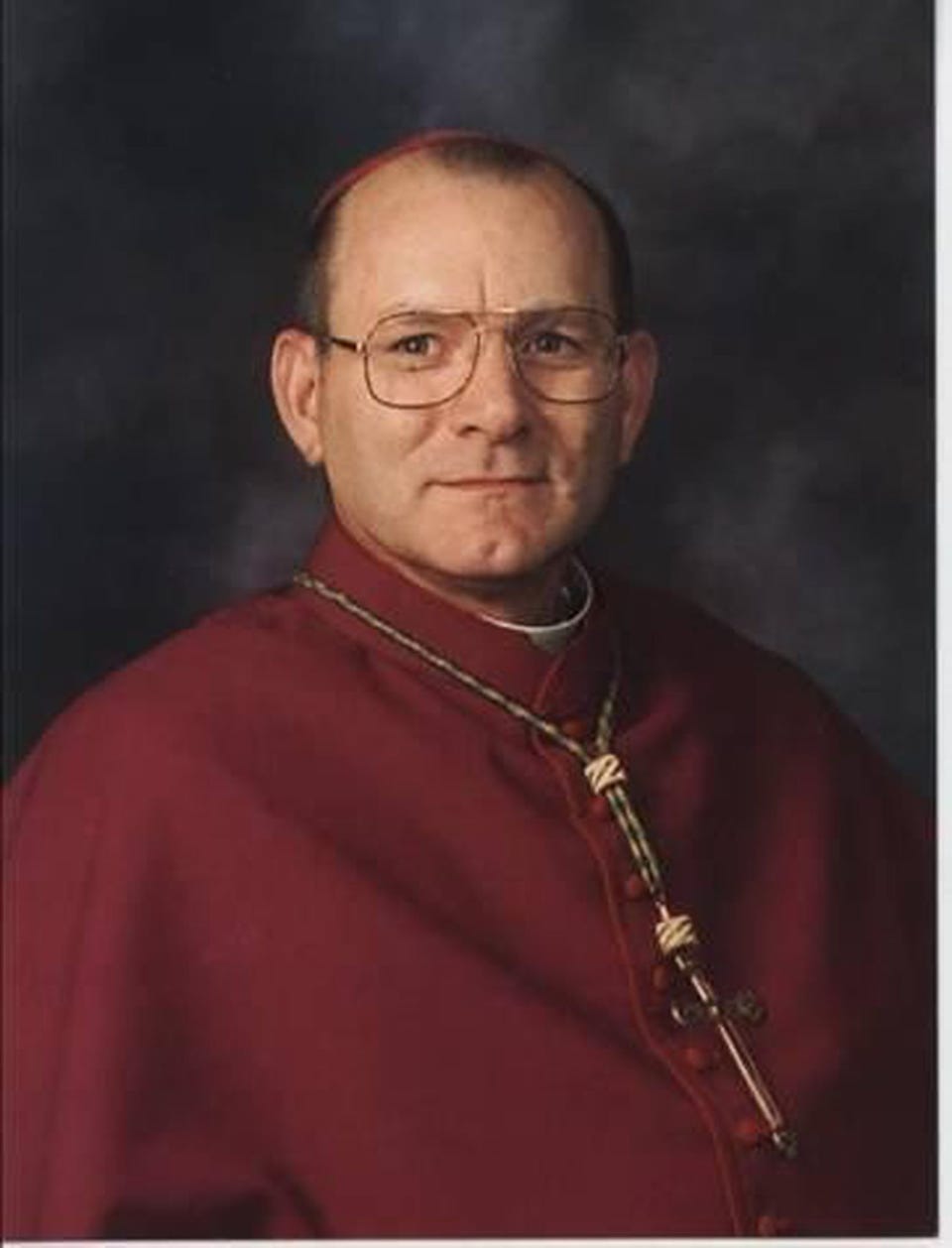The Affirmation of Faith: Bishop Robert Vasa
By John Mallon
Bishop Robert F. Vasa heads the Diocese of Baker, Oregon. He has issued a regulation that requires those involved in parish ministries, especially in catechetics and in service at Mass, to provide assent to a list of ten doctrinal statements as well as to "all the teaching of the Catholic Church."
The document is called the "Affirmation of Personal Faith." Anyone who declines to sign it is asked to withdraw from ministerial duties. Among the issues in the "Affirmation" are teachings on homosexuality, contraception, chastity, marriage, abortion, euthanasia, the Real Presence, Mary, hell, purgatory, and the authority of the Church.
Vasa noted that "some Catholics claim a right to 'religious dissent' from even the serious moral teachings of the Church," but this "does not carry with it a corresponding 'right' to hold positions of esteem as a catechist or liturgical minister."
In a cover letter to lay ministers, Vasa wrote, "The summary statements which I have collected in the 'Affirmation of Personal Faith' are all taken from the Catechism of the Catholic Church. They represent the authentic and authoritative teaching of the Catholic Church, and acceptance of these tenets is expected of every Catholic. While it is sufficient for me to 'presume' that Catholics who attend Mass and receive Communion adhere to these teachings (unless the contrary is clearly evident), such a presumption is not sufficient for those whom I commission to teach and act in some official capacity."
The "Affirmation of Personal Faith" includes statements such as these:
"I affirm that I reject direct, intentional abortion and I do not recognize the legitimacy of anyone's claim to a moral right to form their own conscience in this matter. I am not pro-choice."
"I affirm and believe the Church's teaching about the sinfulness of contraception."
"I affirm and believe the teaching of the Church about the evil of homosexual acts."
"I affirm and believe that those who die in God's grace and friendship but are still imperfectly purified undergo additional purification so as to achieve the holiness necessary to enter the joys of heaven. I affirm that the Church's name for this final purification is purgatory."
"I further acknowledge that those teachings pronounced in a definitive manner, even though not as an infallible definition, are binding on the consciences of the faithful and are to be adhered to with religious assent."
In a footnote the "Affirmation" says that "The Church requires the making of a Profession of Faith by various persons when they undertake specific duties related to Church administration and teaching (cf. Canon 833). In the Diocese of Baker this has been expanded to include those who take on the ecclesial duties of Catechist, Liturgical Reader, Cantor, Extraordinary Minister of Holy Communion, and other Church positions which entail a presumption of orthodoxy."
The full text of the "Affirmation," along with Bishop Vasa's cover letter and an explanatory document titled "Giving Testimony to the Truth," may be found at http://www.dioceseofbaker.org/giving_testimon_to_the_truth.htm
HARRUMPH!
Not surprisingly, not everyone in the diocese has been pleased. A small group calling itself Concerned Catholics of the Diocese of Baker sent a letter to Joseph Cardinal Ratzinger, asking him to review the new documents. The group includes the diocese's former episcopal vicar. The letter charges that "Giving Testimony" is "narrow and imbalanced" in that it ignores "the principal teachings of Christ and the Gospel."
Of course "Giving Testimony" is "narrow," and the "Affirmation," being shorter, is even narrower. If it were to be otherwise, they would be the Catechism, not booklet-length documents. The issue shouldn't be whether "Giving Testimony" and the "Affirmation" are "narrow" but whether what they propose for belief is correct.
If the faith consisted of 100 propositions, it would not be much of an argument to say that a doctrinal statement was too "narrow" because it listed only ten of them. What matters is whether what is listed is true and therefore worthy to be affirmed.
At the largest parish in the diocese, St. Francis of Assisi in Bend, more than two dozen people have withdrawn from ministry. One such person, Wilma Hens, said the "Affirmation" focused too heavily on "pelvic issues." Vasa responded by noting that he "did not set the [sexual] agenda, but the world set that agenda."
Would Hens have signed the "Affirmation" if it had included a few dozen additional points that had nothing to do with sexual morality? Not likely. Her kind of complaint comes from those who reject one or more moral teachings of the Church.
The pastor of St. Patrick's parish in Madras also is unhappy with the "Affirmation." "It breaks my heart," said Fr. Jim Stephens, "that a number of good people ... have told me they cannot continue in parish ministry, that they cannot make the 'Affirmation of Personal Faith' because they have some reservation about some of the teachings."
Stephens says his heart is broken because these people now feel excluded. Why didn't his heart break when he discovered that they didn't accept the entirety of the Catholic faith? Isn't rejection of formal Catholic teachings a worse thing than feeling left out?
What will Stephens do to insure his flock accepts the faith in its entirety? He doesn't say.
